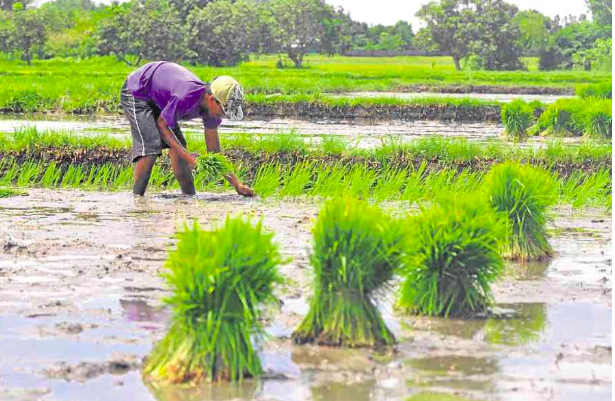
House Speaker Gloria Macapagai-Arroyo says that the Rice Tariffication Law says proceeds of the Rice Tariffication Law will be used to help farmers’ improve their productivity and for them to compete in the market. | Inquirer file photo
CEBU CITY, Philippines — Despite fears that the enactment of the Rice Tariffication Law would kill the local rice production industry, House Speaker Gloria Macapagal-Arroyo said that the new law would still benefit the farmers.
“The proceeds will go to the farmers for their productivity and competitiveness,” Arroyo said in an interview with Cebu reporters after she led two oversight committee hearings here on Monday, February 18.
The new law removes the importation quota on rice, replacing it with a tariff system. According to an Inquirer.net report, these are the new tariff rates for imported rice:
- 35 percent if rice was imported from a member country of the Association of Southeast Asian Nations
- 40 percent if it’s within the minimum access volume (MAV) of 350,000 metric tons and coming from a non-Asean country
- 180 percent if it’s above the MAV and coming from a non-Asean country
Read more: Gov’t urged: Ease Rice Tariffication Law’s effects on farmers with programs to boost rice production
A retail market leader in Cebu has encouraged the government to help local farmers through new technology and research in order to ensure that the industry will not die despite the disparity in the competition against imported rice producers.
Erwin Goc-ong, chairman of the Cebu Market Vendors of Cebu (Cemvedco), earlier told CDN Digital that local farmers would need support in terms of opening irrigation systems, research on resilient varieties of rice, and new technologies in farming.
“The Philippines is very disadvantaged tungod sa mga bagyo. Kung ting-init walay tubig so maglisod kung walay irrigation. Kung ting-uwan, ibanlas sa baha atong mga tanom. We need to have the new rice researches on varieties that can be resilient to this especially kanang upland rice,” Goc-ong said in a previous interview.|dbs